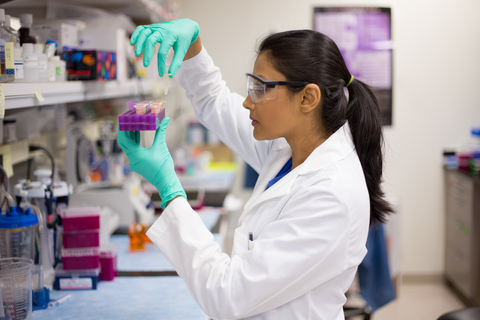Research to improve the diagnosis of of colorectal cancer

Current faecal blood tests for colorectal cancer have a 60% false positive rate. New funding from Cancer Research UK is helping scientists at Cardiff University to find better, safer tests.
Inaccuracy of initial tests for colorectal cancer are putting patients at unnecessary risk, highlighting vital need for the development of precise and non-invasive testing. Cardiff University says a grant of £498,000 is helping researchers at its European Cancer Stem Cell Research Institute to bring this closer to reality.
Dr Lee Parry, Cardiff University’s European Cancer Stem Cell Research Institute, said “Fifty percent of colorectal cancer cases are preventable. Intestinal stem cells are the cells that originate colorectal cancer, and we are investigating how factors like diet, gut bacteria and environment impact on these cells. By understanding the behaviour of these cells, we can improve prevention, diagnosis and treatment of this type of cancer. We believe that we can use a biological agent called SL7207 to detect whether colorectal cancer cells are present. We can administer this agent and if this is persistently present in the faecal testing, this is indicative of pre-cancerous colonic polyps.”
The European Cancer Stem Cell Research Institute focuses on investigating cancer stem cells, which are cells in the tumour that initiate the development of cancer and the spread of cancer through the body, aiming to apply their research to transform the way we prevent, diagnose and treat cancers.
The study is in collaboration with Professor Paul Dyson from Swansea University and Dr Sunil Dolwani from Cardiff University’s School of Medicine.
Lee Parry said “If we can prove that we are correct, this will drive the development of a simple to use, safe and cost-effective test for colorectal cancer that can be used in the clinic. This will also help to reduce burden on hospitals through unnecessary testing, waiting times and risk to healthy patients. Being tested for cancer can be a stressful and worrying time, and it is important that these processes are made as efficient and accurate as possible. This funding is enabling us to potentially provide effective testing kits for colorectal cancer in the future, which will have a dramatic impact on the testing and diagnosis of this disease.”
This article was updated on May 13th 2019 to remove the link to the original article, which is no longer available.








